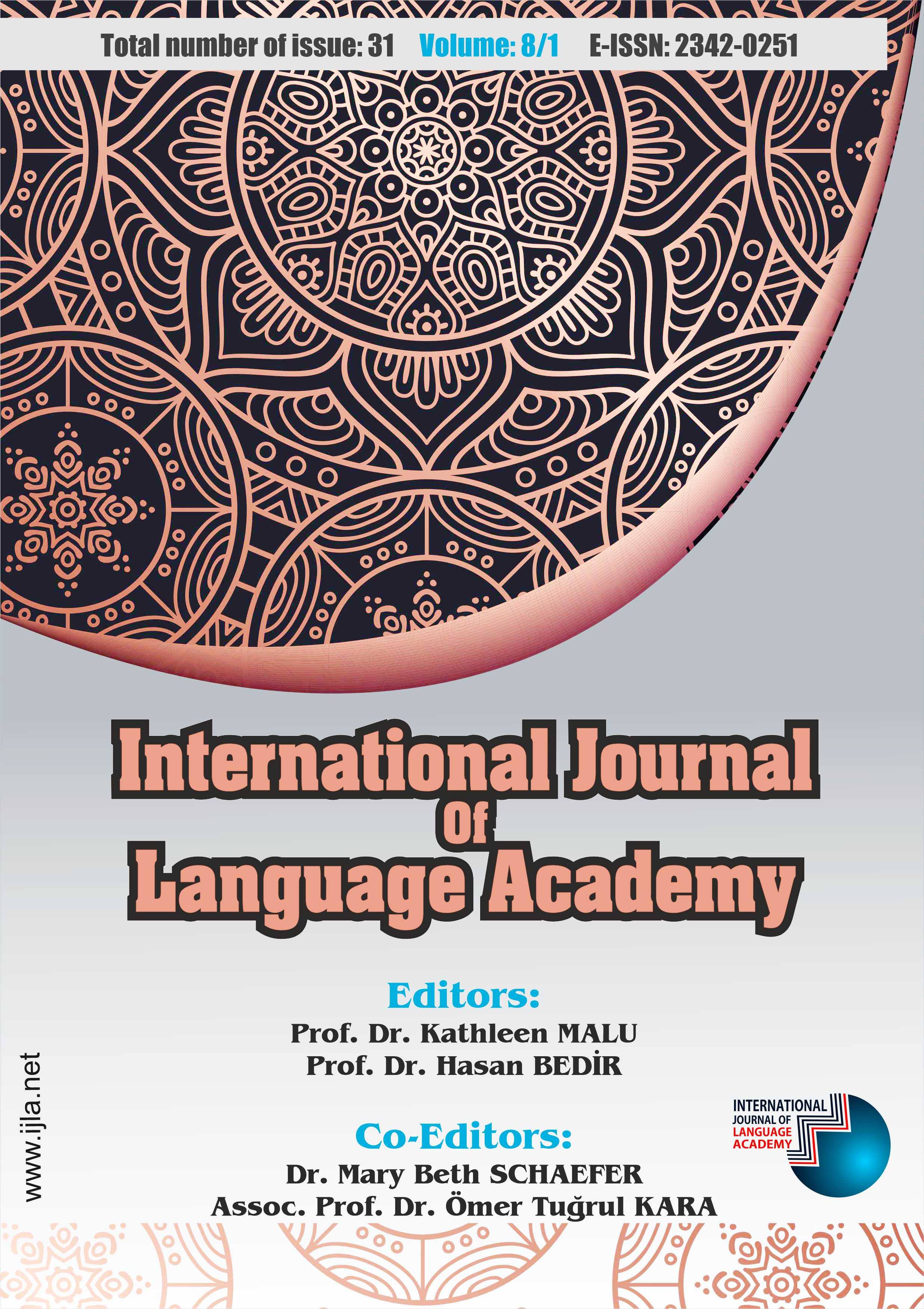Author :
Abstract
Mitlerin Feminist Eleştirisi ve başlangıç noktası, kadın-güçlenmesi tasvirlerinin geliştirilmesi üzerine önemli bir noktaya sahiptir. Kadınlar, daha önce yazılan mitlerin erkek ürünü olduğunu bildiklerinden dolayı, kendilerine ait mitler yaratmanın gerekli olduğunu göstermişlerdir. Bu bağlamda Angela Carter, Fransız Feministlerin ve eleştirmenlerin izlerini takip eder, çünkü Fransız Feministler bilmektedirler ki, ataerkil görüş mitolojilere etki etmektedir ve bu Feministler erkek egemen mitlerini reddederler. Ayrıca Fransız Feministler, kadınlara, erkek-egemen mitlerini yeniden yazmalarını şiddetle tavsiye eder çünkü eril görüşün egemen olduğu bu mitlerde kadın, canavar ve şer olarak ya da aşağı görülen bir varlık olarak tasvir edilmektedir. Bunlara dayanarak, bu çalışma, Mitlerin Feminist Eleştirisini ideolojik ve teorik bağlamlarda incelemeyi hedefleyip Carter'ın, Mitlerin Feminist Eleştirisi hakkındaki görüşlerine yakından bir bakış getirecektir.
Keywords
Abstract
Feminist criticism of myths and its starting point is crucial for the development of the depiction of female empowerment. Women show the necessity of creating myths because they are aware of the fact that those myths are the products of men. In this respect, Angela Carter follows the traces of French feminists and critics for they know that patriarchy impacts myths, and they strongly reject androcentric myths. Also, these feminists strongly advise women to re-write male-dominated myths in which women are shown inferior or depicted as monstrous and evil by men. On this regard, this study aims to overview Feminist Criticism of Myths in terms of ideological and theoretical bases and bring a close look to the Carterian views of Feminist Criticism of Myths.
Keywords
- Abrams, M. H. & Harpham, G. G. (2009). A Glossary of literary terms. Belmont, CA: Wadsworth Cengage Learning.
- Alban, G. M. E. (2013). Medusa as female eye or icon in Atwood, Murdoch, Carter, and Plath. Mosaic a Journal for the interdisciplinary study of literature, vol. 46, no. 4, pp.163-182.
- Bloom, H. (1997). The anxiety of influence: A theory of poetry (2nd Ed). New York, NY: Oxford University Press.
- Caputi, J. (1992). On psychic activism: Feminist mythmaking. In C. Larrington (Ed.), The Feminist Companion to Mythology (pp.425-441). Newyork, NY: HarperCollins.
- Carter, A. (1979). The Sadeian woman: An exercise in cultural history. London, UK: Virago.
- Carter, A. (1982). The passion of new eve, London, UK: Virago.
- Carter, A. (1998). Notes from the front line. In J. Uglow (Ed.), Shaking a Leg: Collected Writings (pp.26-30). London, UK: Penguin Books.
- Cixous, H. (1976). The Laugh of the Medusa (K. Cohen and P. Cohen, Trans.). Signs, vol. 1, no. 4, pp.875-893. Retrieved from http://www.jstor.org/stable/3173239.
- Cornell, S. (1990). Hélene Cixous and les Etudes Féminines. In H. Wilcox and others (Ed.), The Body and the Text: Hélene Cixous, Reading and Teaching, New York, NY: St. Martin’s Press.
- Dörschel, F. B. (2011). ‘’Female identity’’: Rewriting of Greek and Biblical myths By contemporary women writers (Ph.D. Dissertation). Middle East Technical University, Ankara.
- Irıgaray, L. (1993). Je, tu, nous: Toward a culture of difference (A. Martin, Trans.). London, UK. Routledge.
- Jegerstedt, K. (2012). The art of speculation: Allegory and parody as critical reading strategies in The Passion of New Eve. In S. Andermahr and L. Phillips (Ed.), Angela Carter: New Critical Readings (pp.129-145). London, UK: Continuum International Publishing,
- Kerchy, A. (2008). Body texts in the novels of Angela Carter: Writing from a corporeagraphic Point of View. Lampeter, UK: The Edwin Mellen Press.
- Emma Lazarus, "The New Colossus" (1883) (t.y.). Retrieved from https://www.saylor.org/site/wp-content/uploads/2011/02/The-NewCollossus.pdf.
- Munford, R. (2006). Angela Carter and the Politics of Intertextuality. In R. Munford (Ed.), Re-Visiting Angela Carter: Texts, Contexts, Intertexts (pp. 1-20). New York, NY: Palgrave Macmillan.
- Peach, L. (1998). Modern novelists: Angela Carter. London, UK: Macmillan Press.
- Staley, G. (2006). Beyond Glorious Ocean: Feminism, Myth, and America. In V. Zajko and M. Leonard (Ed.), Laughing with Medusa: Classical Myth and Feminist Thought (pp.209-230). New York, NY: Oxford University Press.
